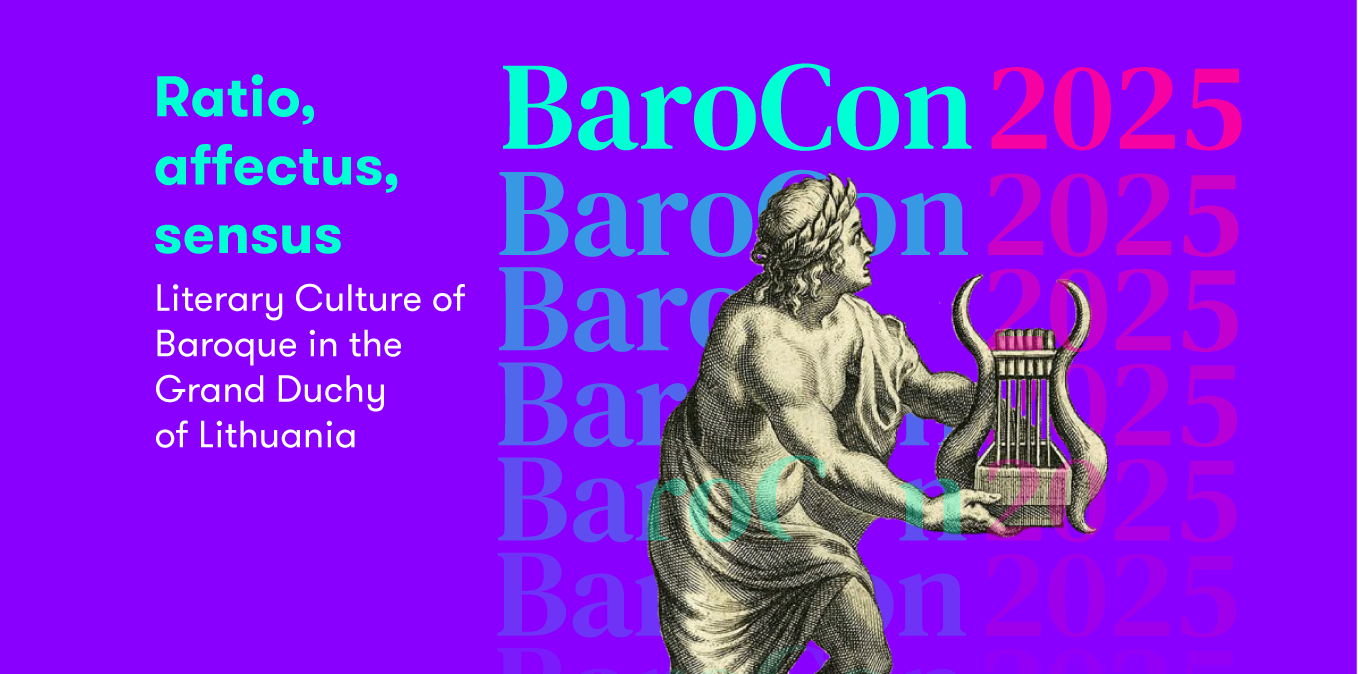Ratio, affectus, sensus: Literary Culture of the Baroque in the Grand Duchy of Lithuania
In 2025, we will commemorate the 400th anniversary of the first publication of Matheus Casimirus Sarbievius' most famous Latin poetry collection 'Lyricorum libri tres' (1625). This has led to 2025 being declared the Year of Baroque Literature in Lithuania. The eminent Jesuit neo-Latin poet of the Polish-Lithuanian Commonwealth, Sarbievius, has been hailed as the Christian Horace and the Sarmatian Horace. His theoretical thoughts on poetry and rhetoric are still highly regarded and have inspired new research on other concurrent themes and authors. This anniversary provides an opportunity to explore the extent and diversity of Baroque literary culture, which has seen a surge of interest in recent decades, both in the academic world and in popular culture. Therefore, the Institute of Lithuanian Literature and Folklore, together with the Faculty of Philology of Vilnius University, is organising an international academic conference "Ratio, affectus, sensus: Literary Culture of the Baroque in the Grand Duchy of Lithuania" on 25-27 September 2025 in the baroque city of Vilnius.
The aim of the multidisciplinary conference is to stimulate discussion on the literary culture of the "long seventeenth century" (from the end of the 16th century to the middle of the 18th century) in the Grand Duchy of Lithuania. This historical period, associated with dramatic changes and a general cultural crisis, is often described in contradictory terms and in constant tension between reason and senses, rigid structure and passions, classifications and impressions, etc. By embracing this contradiction, we invite an exploration of the theme in question through the lens of this dynamic interplay between reason (ratio), emotion (affectus) and the senses (sensus), which can be perceived in various genres of the period, such as poetry, biography, hagiography, rhetoric, private and public correspondence, and so on. The importance of the modern approach lies not only in what it can reveal about the Baroque in the Grand Duchy of Lithuania, but also about subsequent and contemporary literary culture, as scholars have demonstrated the continuing influence of a 'Baroque spirit'.
Event location
25–26 September the conference will take place at V. Krėvė (118) auditorium, Faculty of Philology
27 September the conference will take place at the Church Heritage Museum, Šv. Mykolo g. 9 (entrance from Maironio g. "Arkangelo konferencijų centras")
Keynote speakers

Ona Dilytė-Čiurinskienė
Senior Researcher, The Institute of Lithuanian Literature and Folklore
Prof Stephen Harrison
Professor of Latin literature, University of Oxford
Asta Vaškelienė
Reception of Sarbievius’s Poetic Works in Latin Occasional Literature of the Grand Duchy of Lithuania of the 18th Century
Asta Vaškelienė
The Institute of Lithuanian Literature and Folklore
Reception of Sarbievius’s Poetic Works in Latin Occasional Literature of the Grand Duchy of Lithuania of the 18th Century
The analysis of the 18th-century Latin occasional literature of the Grand Duchy of Lithuania revealed that Sarbievius was one of the most quoted Baroque poets. The analysis of Latin occasional literature of the Grand Duchy of Lithuania of the 18th century has shown that Sarbievius was one of the most quoted Baroque poets. Fragments of his lyrics were used by later authors as independent units or in composition with the poetry of Propertius, Ovid, Horace, Virgil, Lucan, Claudian or Statius – authors of classical and late antiquity. The study of occasional works of the 18th century has revealed that the motifs of Sarbievius’ poetry were particularly well known to the 18th century writers. This is evidenced by the skillful use of quotations, paraphrases and topoi of Sarbievius’ poetry. It is interesting to note that Sarbievius’s poetry was successfully ‘adapted’ by later authors not only in various forms (verse and prose), but also in works of different genres (quoted in wedding and funeral works, greetings, panegyrics etc.). His verse stanzas were also used in place of, or originally incorporated into, coat-of-arms verses. Many authors of the time, demonstrating their literary erudition, included Sarbievius’ lines corresponding to an idea or theme in the wishes at the end of an epithalamium or panegyric. The influence of Sarbievius’ poetic work can be felt until the end of the eighteenth century: closely linked to the Latin tradition, it begins to fade as the cultural paradigm shifts.


